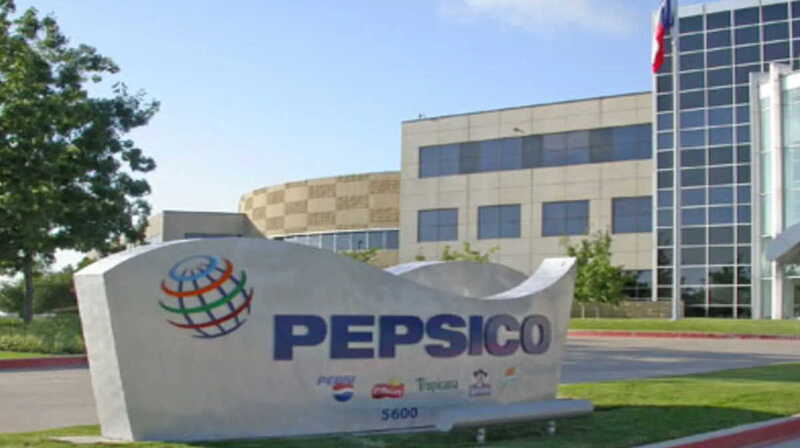
5 Steps to Build an Effective CSR Strategy
In today’s business landscape, Corporate Social Responsibility (CSR) has evolved from being a “nice-to-have” to ...

Pepsico offered a $1 million grant to World Food Program (WFP) to co-create a multi-country partnership in the Middle East and North Africa (MENA), focusing on improving long-term food security needs of communities affected by climate change, conflict, natural disasters and humanitarian crises. This grant builds upon a decade-long partnership with WFP.
Pepsico announced a new goal to help 50 million people gain ready access to nutritious foods by 2030 (2020 baseline) through its Food for Good food security program and the expansion of PepsiCo’s affordable nutrition offerings as part of its PepsiCo Positive (pep+) journey.
This new goal is in addition to PepsiCo’s recently announced support for the Zero Hunger Private Sector Pledge, pledging $100 million in positive agriculture and food security initiatives by 2030, including training farmers and helping strengthen agricultural production with plans to increase crop yields and help ensure a more resilient food supply.
To achieve these goals, PepsiCo is expanding globally Food for Good, a childhood nutrition program founded in the United States, by partnering with local leaders on their needs to develop community-centric solutions together. The company aims to evolve and expand Food for Good and this community-centric approach to advance long-term food security for people of all ages through collaboration with local partners around the world, by investing in solutions that increase equitable access to nutritious food and increase productivity and incomes of small-scale farmers.
New investments aim also to expand She Feeds the World, a partnership with CARE to ensure gender equality and economic empowerment for women agriculture workers across the globe, into Colombia, Nigeria, Turkey, Thailand and Vietnam in 2022. The program is currently active in Uganda, Egypt and Peru.
Under the new investments, Quaker is partnering with regional NGOs CARE and Un Kilo de Ayuda to scale interventions to combat childhood malnourishment, with programs like Quaker Qrece, a holistic intervention that provides a specialized food product and education in at-risk communities in Guatemala and Mexico.
The brand is also expanding the range of nutritious and affordable products including the 3 Minutos brand it offers in Mexico. In early 2022, Quaker plans to launch a new, affordable nutritious product in Nigeria. In Africa, Pioneer Foods will also continue to grow their portfolio of affordable, nutritious options.
“The world is facing a dire global hunger crisis, which has only been exacerbated by the pandemic,” said Jon Banner, Executive Vice President, PepsiCo Global Communications and President, The PepsiCo Foundation. “As a leading global food and beverage company, we have a critical role to play in realizing a more equitable global food system to ensure the communities we serve are free from hunger and malnutrition. We are proud to leverage our global capabilities in collaboration with local community partners in new ways, but it is just one step in a long journey toward realizing zero hunger and ensuring a sustainable future for all.”
These global commitments come at a critical time. Currently, roughly 800 million people around the world are suffering from hunger and recent estimates show that more than 40% of the world’s population cannot afford a healthy diet. This increased number of people suffering from malnourishment are at a greater risk of COVID-19 infection and death.
“We are grateful to PepsiCo for their decade-long partnership and steadfast support as we work to defeat global hunger,” said World Food Program USA President and CEO Barron Segar. “PepsiCo’s critical investments in sustainable agriculture and building the resilience of small-scale farmers are helping us make great progress in addressing the root causes of hunger.”
During the pandemic, PepsiCo supported more than 1,000 communities across the world, providing more than $71 million in funding and donations and more than 145 million meals to those in need. For more than a decade, PepsiCo has advanced food security by solving unique challenges faced by local communities. By bringing all its regional nutrition-related programs under Food for Good, PepsiCo will be able to better leverage their global capabilities and strive to reach their goal of making nutritious food readily accessible to more than 50 million people by 2030.
Additional Food for Good programs includes a meal delivery initiative spanning across Latin America, Europe, Sub-Saharan Africa, the Middle East and Asia Pacific, a nutrition education program for students in rural China, a nutritious school breakfast service for students in South Africa, positive agriculture programs in southern Mexico, as well as investment in increased capabilities of food banks around the world.
In Europe, programs include partnerships with food banks to nourish communities by donating meals and building critical distribution infrastructure, as well as development projects to provide long-term food security for regional agricultural workers. Programs have already launched in Poland, Germany, Spain, Turkey and Russia with more to follow over the coming months.
Over the past year, PepsiCo has accelerated its efforts to help make the food system more sustainable, regenerative and inclusive. PepsiCo recently launched its most ambitious effort yet by embracing a bold new approach called pep+ (pep Positive) – a strategic end-to-end transformation, with sustainability at the center of how the company will create growth and value by operating within planetary boundaries and inspiring positive change for the planet and people.
اترك تعليقا